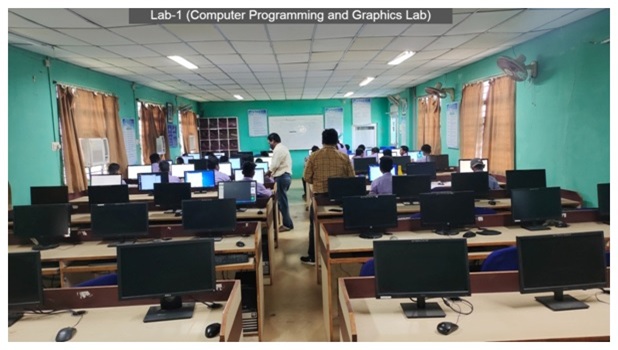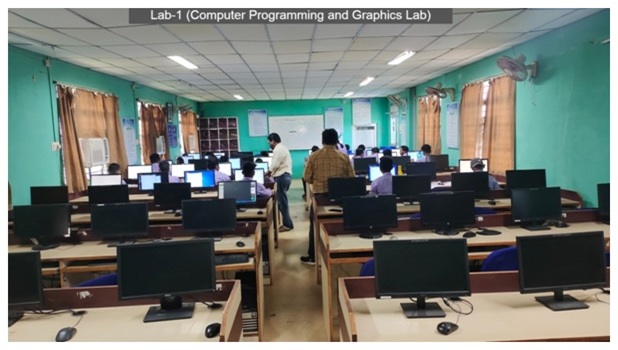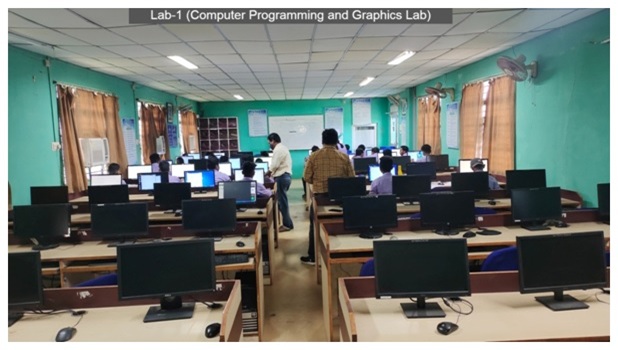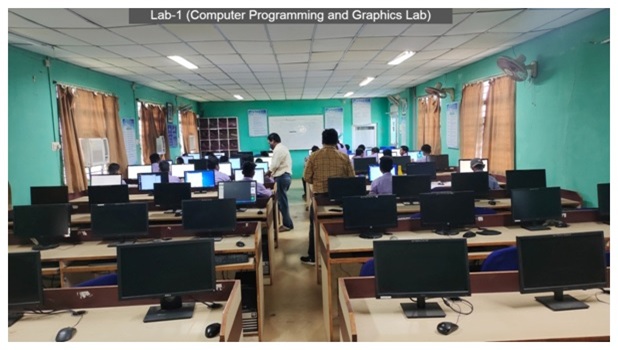Keeping in consideration the increasing interest of the student towards management subject and fulfilling the demand of the management students in the market, the MBA programme started functioning in the Institute in the year 2016. Steps like adoption of innovative pedagogy method, increasing emphasis upon practical experience through industry institute interaction and industry related course structure have made the MBA Department distinguished from other institutes. Since inception, the department is striving to achieve excellence in the academics and holistic development of the students.
Department of Business Administration, GITA Autonomous College is recognized as a centre of excellence in the field of Management Education. The Department is accredited by BPUT to provide MBA & Ph. D. programmes on following field of specialization:
- Human Resource Management : : : : -Operation Management
-Marketing Management : : : : -Business Analytics
- Finance Management : : : -Information Technology & Management
Welcome to Department of Business Administration, GITA Autonomous College, Bhubaneswar a centre of learning, critical thinking and excellence with difference! With management education as central to our engagement, we must resolve to dispose ourselves to shape the young minds with conscience, compassion, competence, commitment and character to address the needs of corporate and societies. The students of the business administration department are exposed to the toughest of the situations, which shape them as tough leaders with resilience to give leadership to the corporate, societies, communities, groups and families. The constant striving for perfection in GITA enables them to survive in the competitive atmosphere of organizations and grow. The process centric approach has won many laurels for the department in the past. While trying to be competitive to face the market, we have not forsaken our sight on promoting ethical and human values, which are the hallmark of MBA@GITA – Shaping the Management Professionals with a Distinct Values. With Best Wishes,
To be recognized as a world class Management institute through excellence in management education and relevant contextual research
M1. To nurture talent, foster entrepreneurial spirit and cultivate a community of lifelong learners.
M2. To promote a feeling of societal and environment connection and foster ethical thinking among students.
M3. To collaborate with industry, government, society and academic institutions globally to strengthen the entrepreneurial capacity of the country.
M4. o empower students for real world impact, cultivating a diverse, innovative and globally aware generation of business leaders.
M5. To enrich the sphere of knowledge through quality collaborative research .
Research Publications and Patents
MBA Department
Research Publications
Data will appear here once uploaded from the admin panel.




Faculty Achievements
| Sl. no. | Name of Faculty | Details of Award | Year | Awarded By |
|---|---|---|---|---|
| No achievement data available. | ||||
Seminars / Workshops / Webinars
| Sl. No. | Date | Title | Resource Person | Image |
|---|---|---|---|---|
| 1 | 2024-03-15 | Prof. John Doe | Leadership & Management Workshop | — |
| 2 | 2023-05-20 | Dr. Jane Smith | Digital Marketing Trends | — |
| 3 | 2022-11-12 | Faculty | Entrepreneurship Development Program | — |
| 4 | 2023-09-07 | Dr. Alice Kumar | Financial Analytics Seminar | — |
| 5 | 2024-01-22 | Strategic Management Conference | MBA Students | — |
| Company | Package (LPA) | No. of Students | Profile |
|---|---|---|---|
| TCS | 8.5 | 5 | Business Analyst |
| Infosys | 7.8 | 4 | Management Trainee |
| Wipro | 9.2 | 3 | Consultant |
| HDFC Bank | 10.5 | 2 | Relationship Manager |
| Student Name | Achievement | Year | Score |
|---|---|---|---|
| Anjali Singh | University Gold Medal | 2023 | 9.8 CGPA |
| Rahul Verma | Best Project Award | 2023 | A+ |
| Priya Patel | National Level Case Study Winner | 2023 | 1st Prize |
| Subject Code | Subject Name | Credits | Type |
|---|---|---|---|
| MBA101 | Management Principles | 4 | Core |
| MBA102 | Business Economics | 4 | Core |
| MBA103 | Accounting for Managers | 4 | Core |
| MBA104 | Business Communication | 3 | Core |
| Subject Code | Subject Name | Credits | Type |
|---|---|---|---|
| MBA201 | Marketing Management | 4 | Core |
| MBA202 | Financial Management | 4 | Core |
| MBA203 | Human Resource Management | 4 | Core |
| MBA204 | Operations Management | 4 | Core |
| Name | Qualification | Specialization | Experience |
|---|---|---|---|
| Dr. Rajesh Kumar | PhD in Management | Marketing | 15 Years |
| Prof. Sunita Sharma | MBA, NET | Finance | 12 Years |
| Dr. Amit Patel | PhD in Economics | Economics | 18 Years |
| Name | Company | Specialization | Industry Exp |
|---|---|---|---|
| Mr. Alok Verma | HDFC Bank | Banking | 20 Years |
| Ms. Priya Singh | Infosys | IT Management | 16 Years |
| Mr. Rohit Mehta | Reliance | Strategic Management | 22 Years |
| test | test | test | test |
Board of Study
| Sl. No. | Photo | Member Name | Designation | Qualification | Brief Profile |
|---|
| Sl No | Student Name | Company Name |
|---|